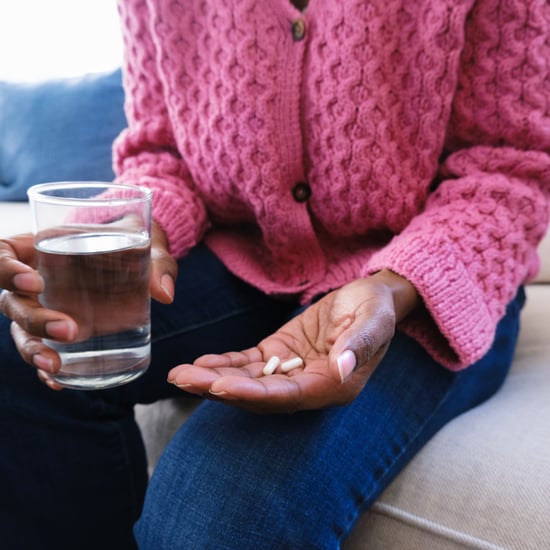What Does Elderberry Do For the Immune System?
Can Elderberry Boost Your Immune System? The Experts Explain

There's a bottle of elderberry syrup sitting in my refrigerator. When I'm feeling a little sniffly, the beginning of a sore throat, or unusually physically drained, I down a spoonful of the botanical solution — note: it does not taste like sugar — in an effort to hopefully kick a cold from coming on strong.
It's a trending tip I picked up after an Internet deep dive on natural remedies for cold symptoms. Sometimes, after a dose of the thick, tangy syrup and a good night's sleep, I've felt alive and well once again. Other times, my elderberry consumption has seemingly done nothing and my health continues to plummet.
So, in search of the truth on what elderberry actually does for the body — and if it can, in fact, help boost your immune system — I reached out to some experts for sound advice.
Angie Kuhn, MS, RDN, and nutritionist with Persona Nutrition, says that elderberry, thanks to its high antioxidant content, can help improve the immune system. "It can also help with other factors like joint pain, constipation, and motility," she adds.
Typically, elderberry is taken as a syrup or an extract, but some companies have formulated the ingredient into gummies or supplements.
"It's best used when you feel like you're starting to get sick, and it's best to take within 24 hours of initial symptoms," Kuhn says.
That leads to the question — does it actually kick a cold or prevent you from getting, say, the flu?
According to Dr. Tania Elliott, MD FAAAAI, FACAAI, associate attending at NYU Langone Health in New York City, and national spokesperson for the American College of Allergy, Asthma, and Immunology, probably not. Other experts note that more research is truly needed.
While she says there are small studies that show elderberry can help with cold and flu symptoms, there's "no convincing evidence that elderberry is the magic bullet for cold and flu."
Your best bet, Dr. Elliott says, is getting your flu shot.
For colds, the Mayo Clinic suggests good ol' rest and recovery, as well as staying hydrated, keeping the air around you moist, and washing your hands regularly.
If you do want to add it to your diet — for whatever reason — it's best to chat with a professional about your product of choice first.
Kuhn says the raw berries of this plant are toxic, and can cause nausea and vomiting. It's also not recommended for pregnant or breastfeeding women, and can make symptoms worse for anyone who already has an autoimmune condition.
Click here for more health and wellness stories, tips, and news.




